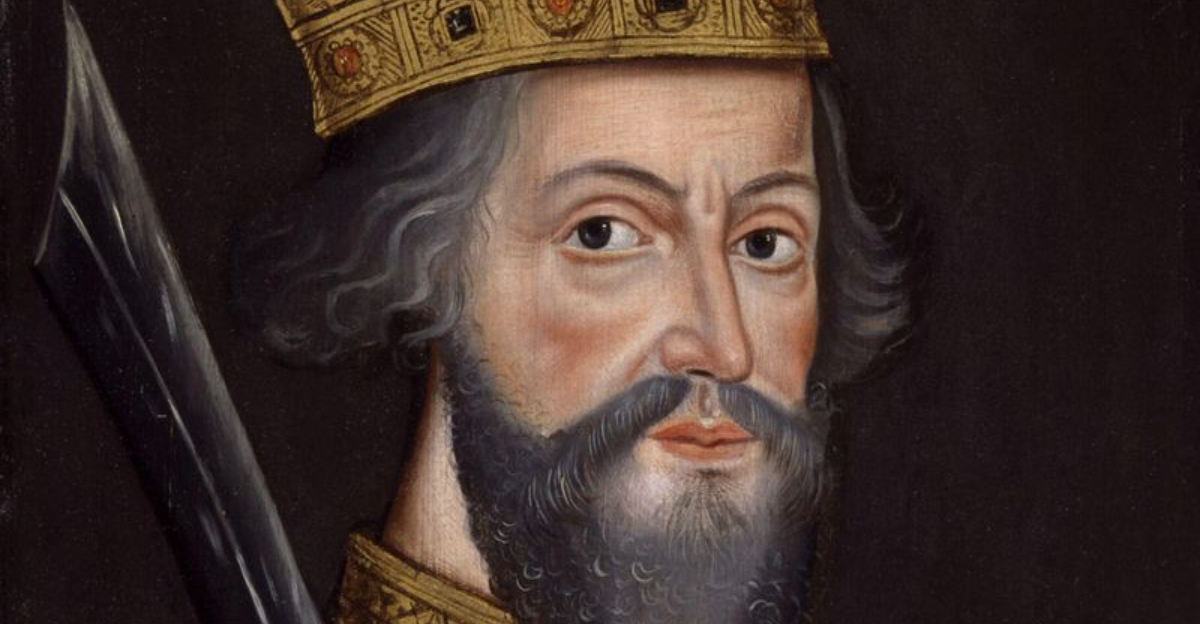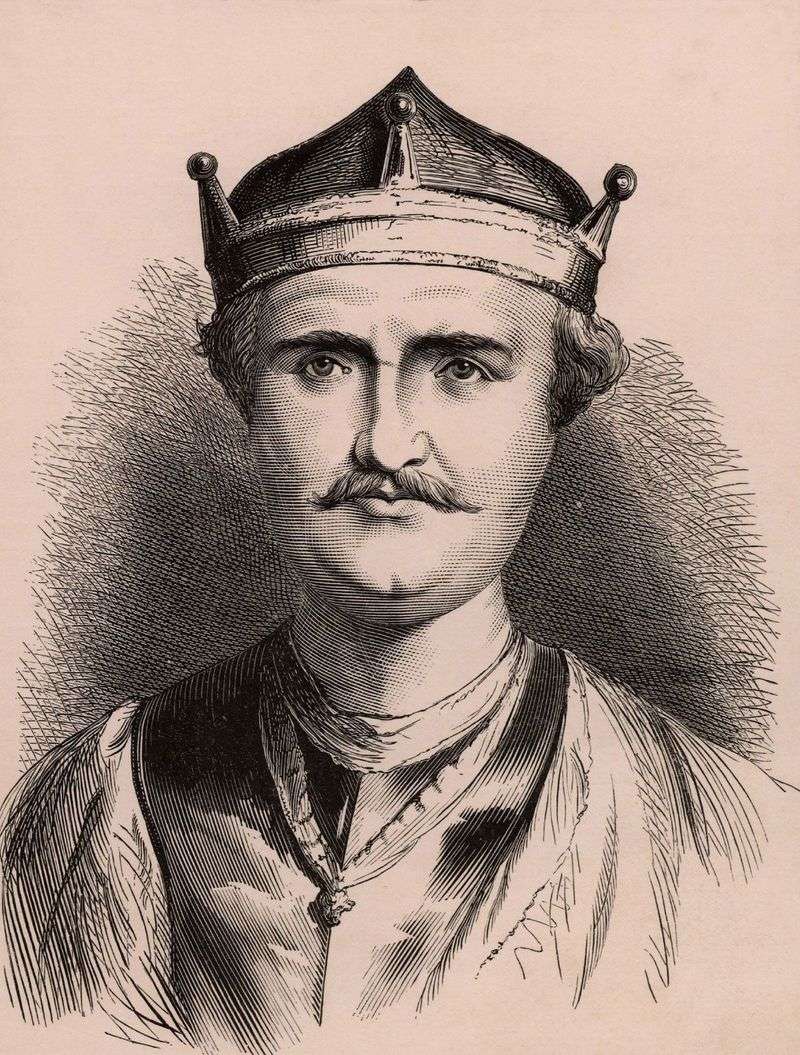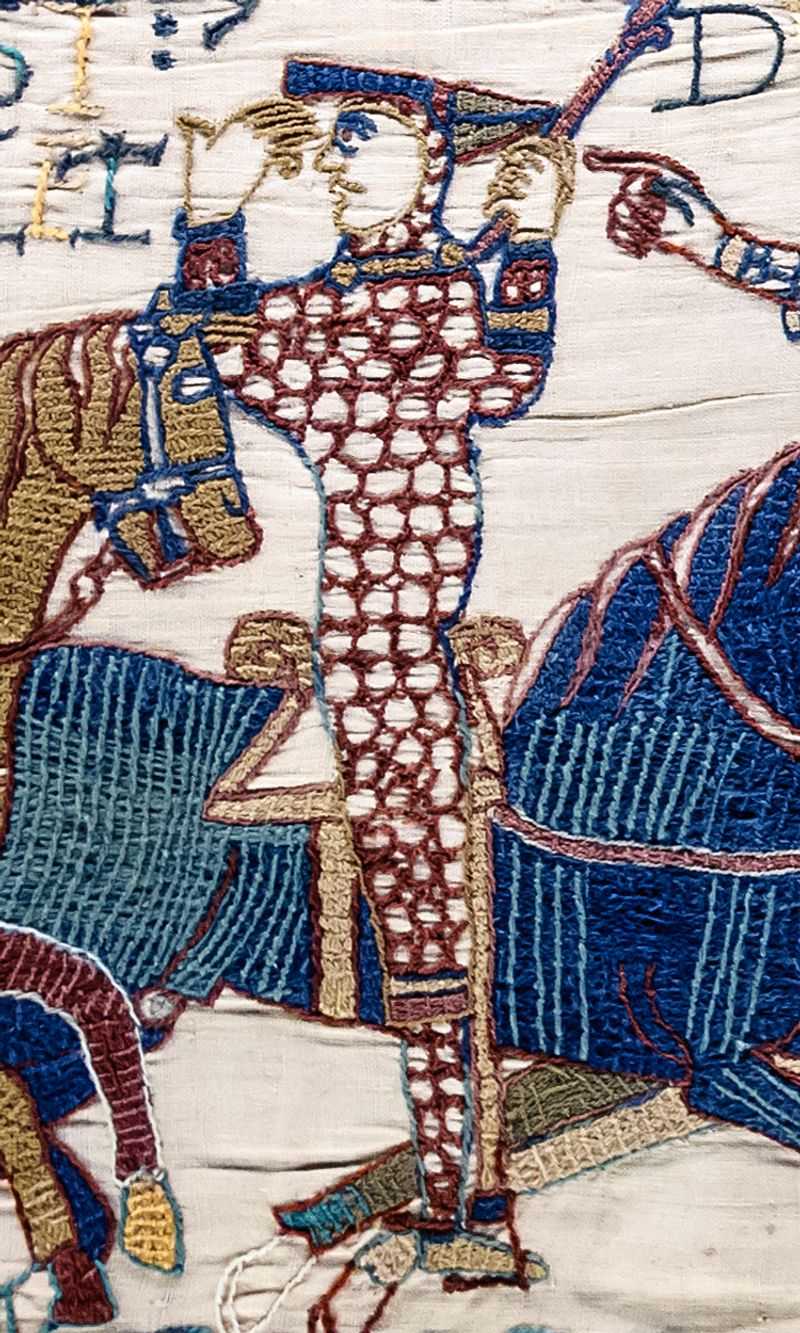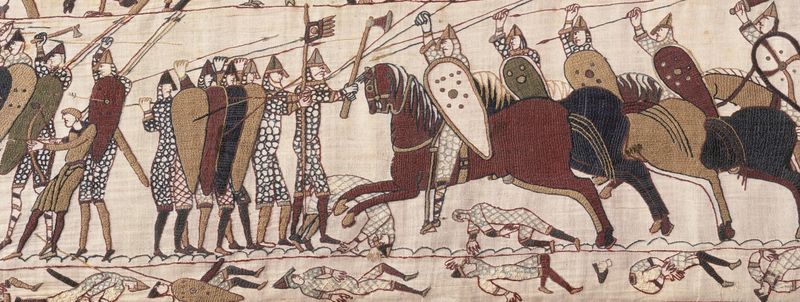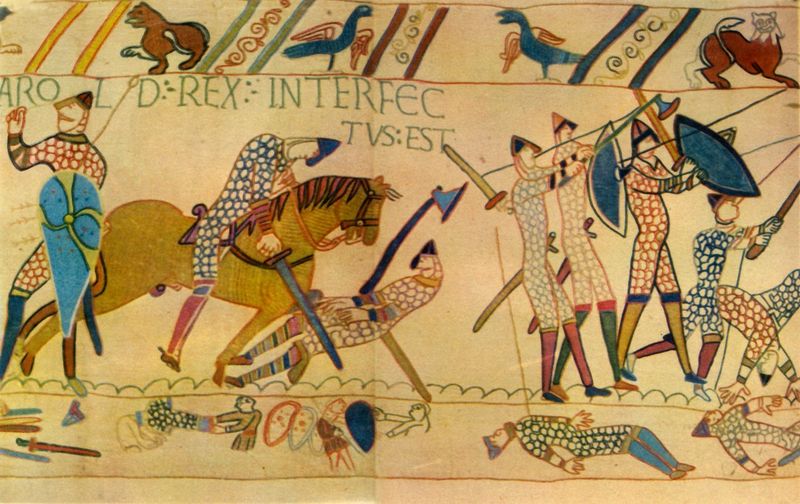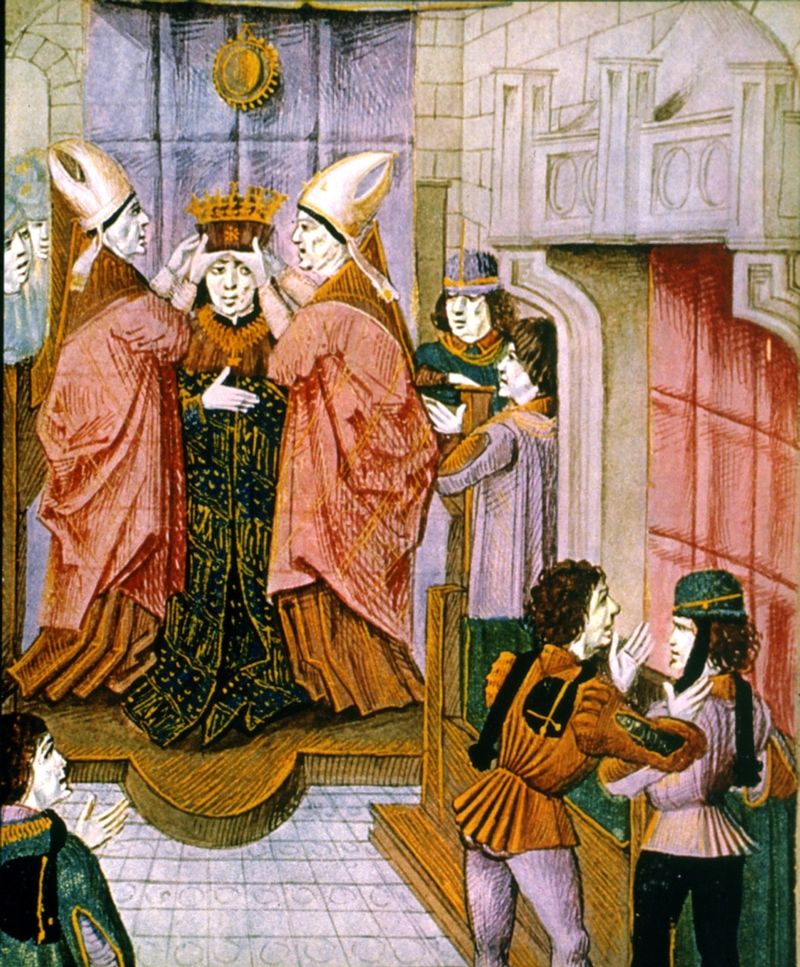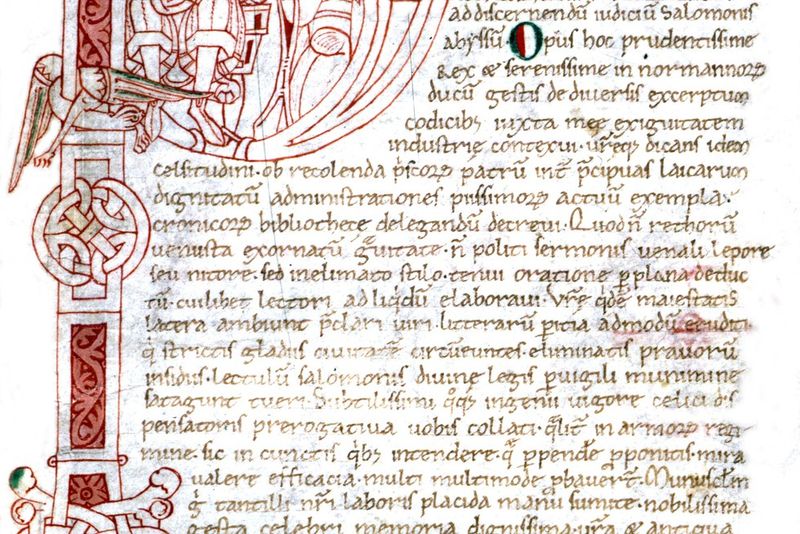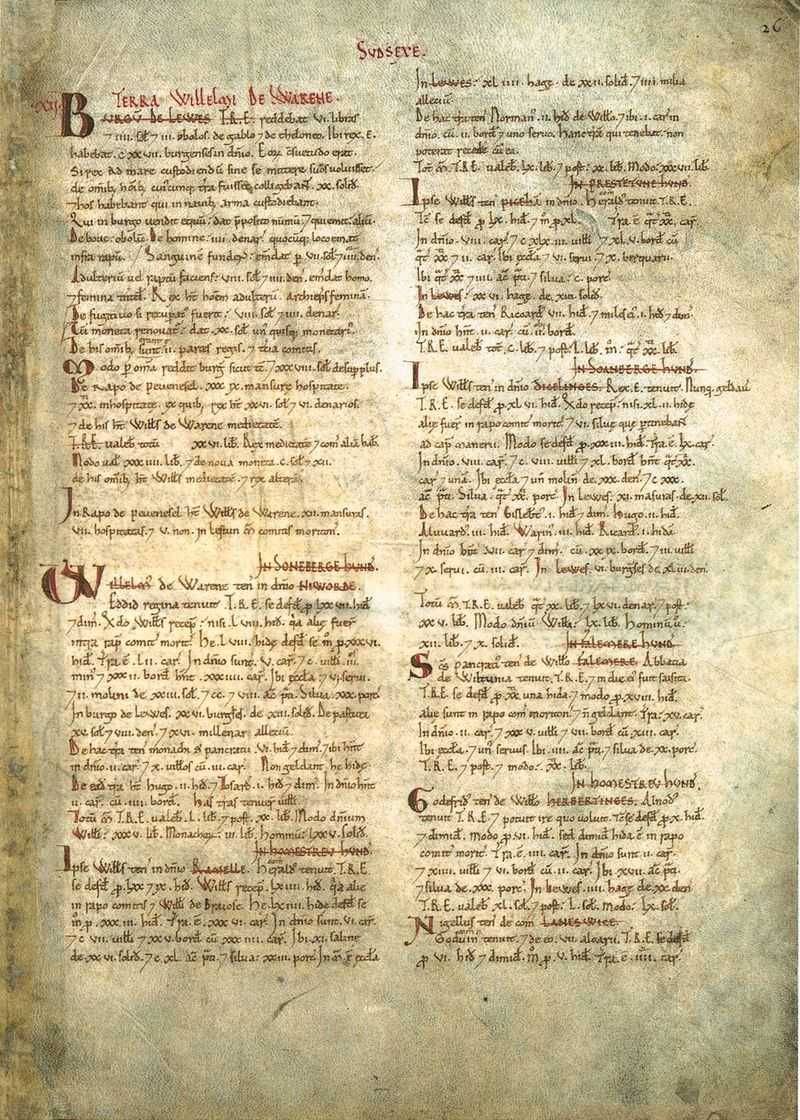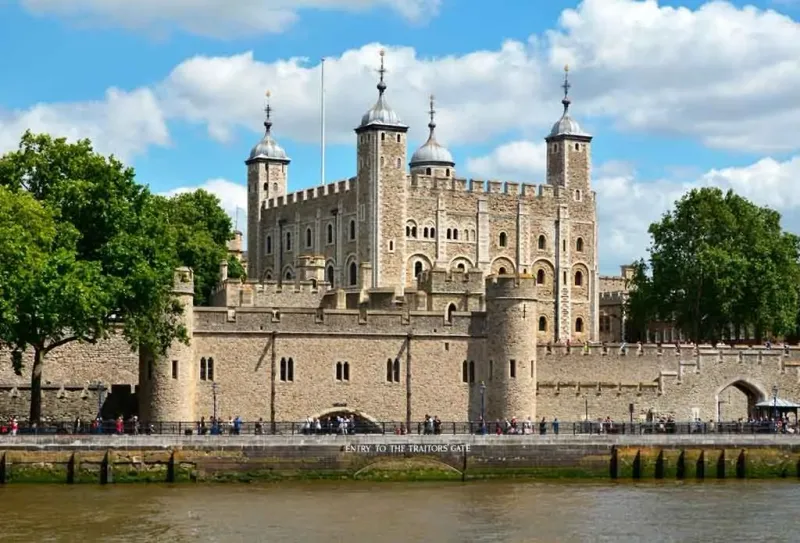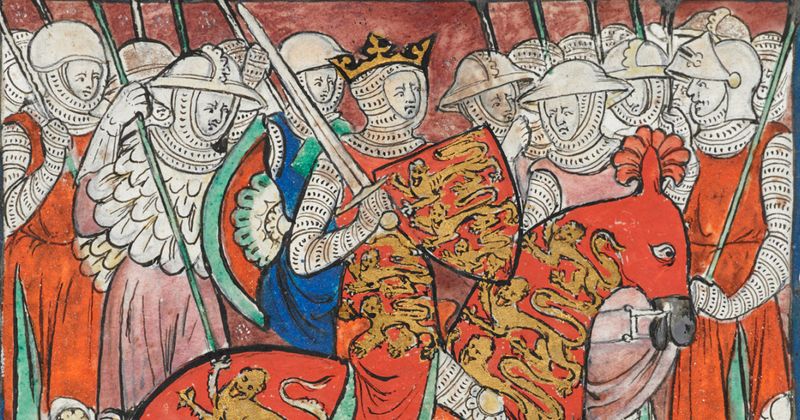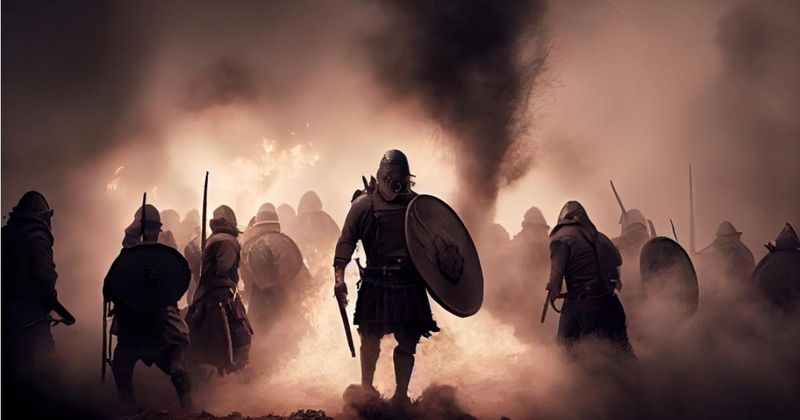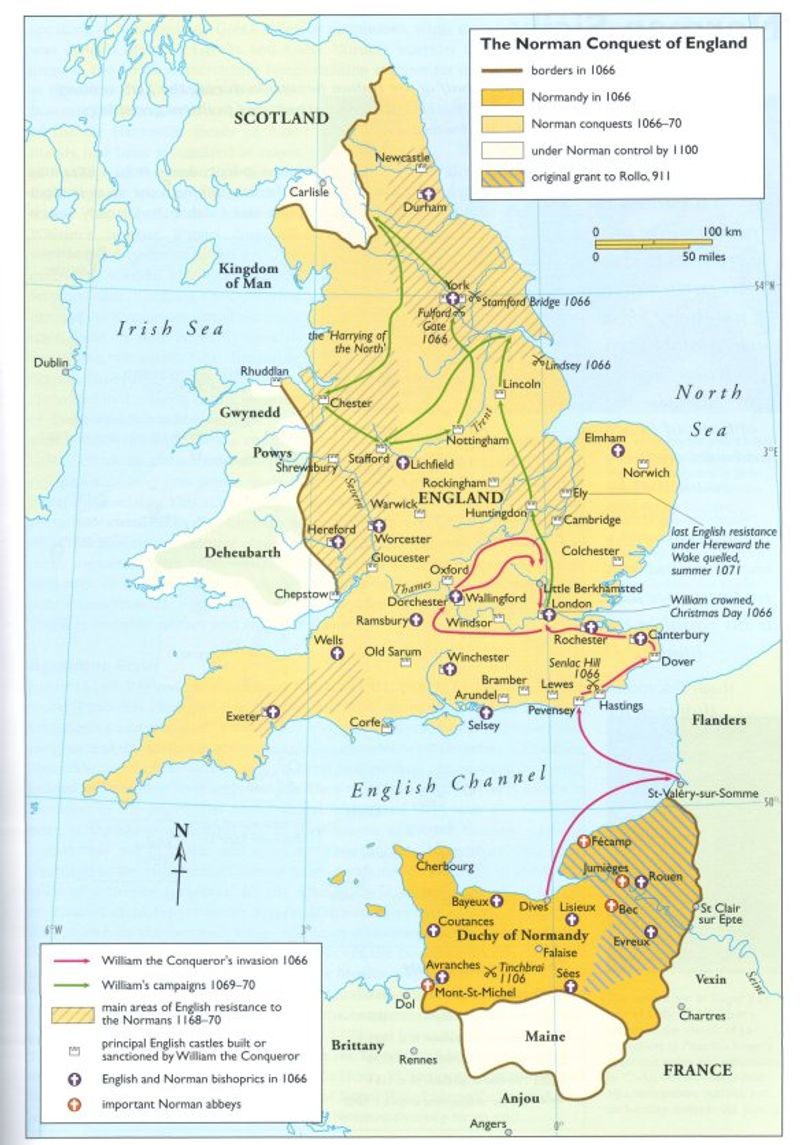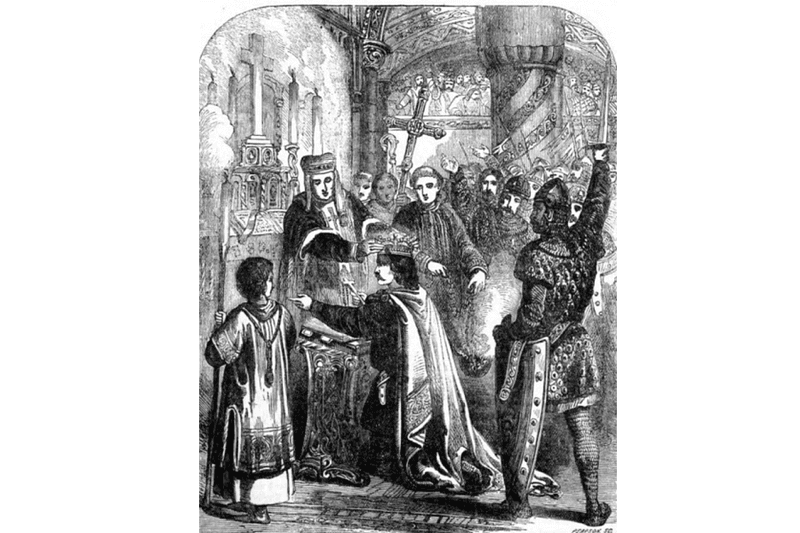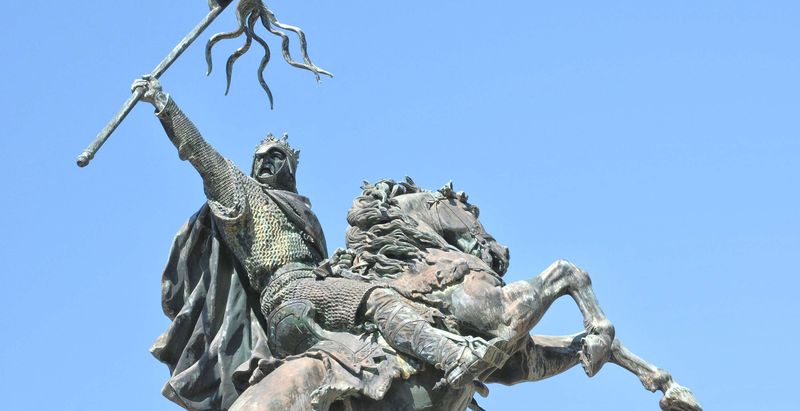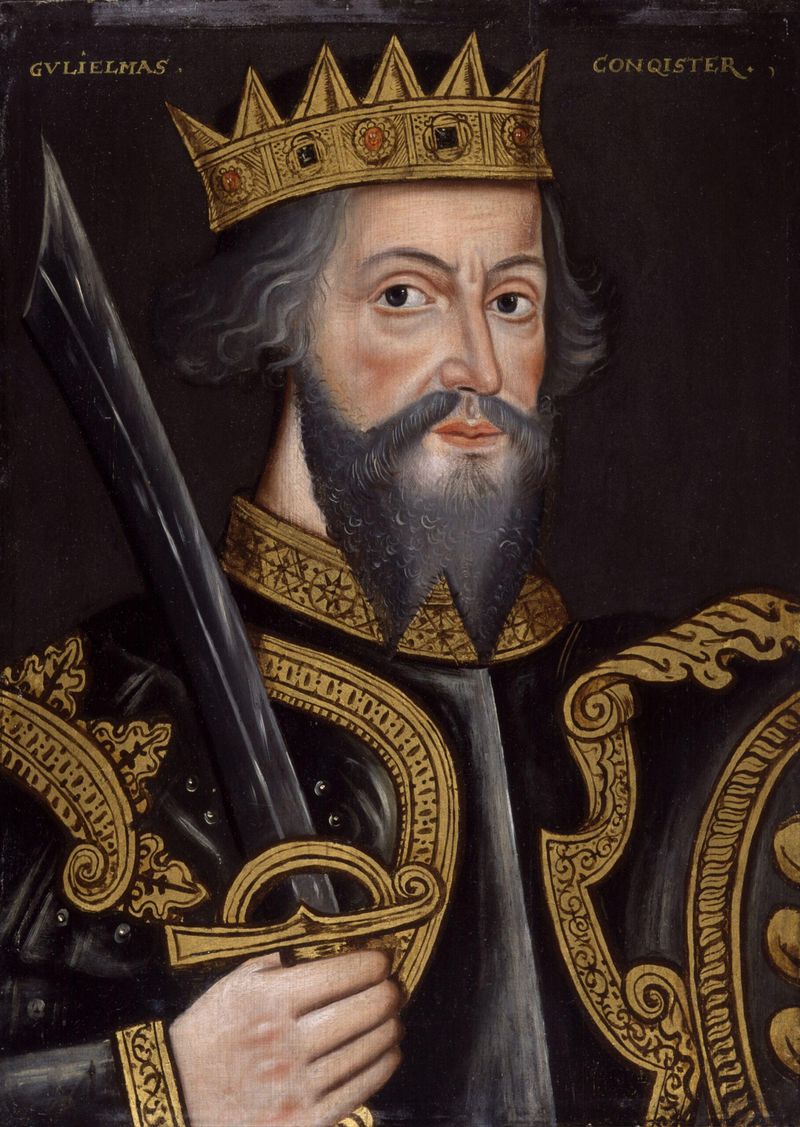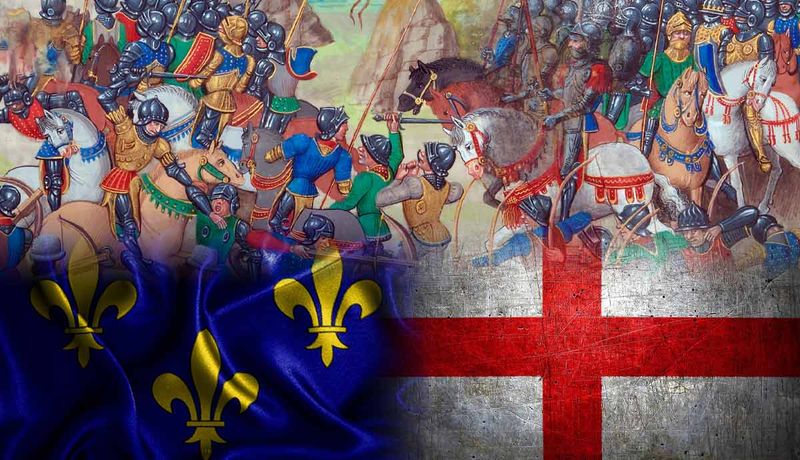William the Conqueror changed English history forever when he sailed across the English Channel in 1066. Born as an illegitimate son in Normandy, he rose to become one of Europe’s most powerful rulers.
His invasion of England didn’t just win him a crown – it transformed an entire nation’s language, culture, and government in ways that still affect us today.
1. He Was Born William the Bastard — Literally
Nobody expected much from little William when he was born around 1028. His father, Robert I of Normandy, wasn’t married to his mother Herleva, making William illegitimate by medieval standards.
People actually called him “William the Bastard” throughout his youth – imagine having that as your nickname at school! Being illegitimate meant he had no guaranteed right to inherit his father’s lands.
When Robert died unexpectedly in 1035, seven-year-old William became Duke of Normandy anyway. Many nobles refused to accept a bastard as their leader, leading to years of dangerous rebellions and assassination attempts against the young duke.
2. He Was Cousin to the English King He Defeated
Family dinners would have been awkward between William and Edward the Confessor, England’s king. Edward was William’s distant cousin, and according to William, Edward promised him the English throne during a visit to Normandy.
When Edward died childless in 1066, William felt betrayed that Harold Godwinson was crowned instead. He claimed Harold had even sworn an oath to support his claim to the throne – though Harold probably had no choice at the time.
This family feud over a crown led to one of history’s most famous invasions. William genuinely believed he was the rightful heir, making his conquest feel justified to him and his supporters.
3. He Invaded England in 1066 With Papal Blessing
William didn’t just gather soldiers for his invasion – he got God on his side too. Pope Alexander II officially blessed William’s claim to the English throne, making the invasion a holy war.
The papal banner flew proudly at the Battle of Hastings, giving William’s troops extra confidence. Having the Pope’s support meant William could recruit knights from across Europe, not just Normandy.
This religious backing was brilliant propaganda. William’s soldiers believed they were fighting for God’s will, while Harold’s forces looked like rebels against divine authority. Many European nobles joined William’s cause specifically because the Church supported it.
4. The Battle of Hastings Was Won in One Day
October 14, 1066, started as a normal Saturday but ended with England under new management. The Battle of Hastings lasted from morning until evening, with both armies fighting desperately for control.
Harold Godwinson’s English forces held strong defensive positions on Senlac Hill. William’s Normans struggled to break through until they used a clever trick – pretending to retreat to lure the English downhill.
The battle’s turning point came when Harold was killed, supposedly by an arrow to the eye. Once their king fell, English resistance collapsed quickly. William had conquered an entire kingdom in just one day of fighting.
5. He Was Crowned King on Christmas Day
William chose Christmas Day 1066 for his coronation at Westminster Abbey – talk about a memorable holiday gift to himself! The ceremony should have been joyful, but it turned chaotic when Norman guards misunderstood crowd cheers.
Thinking the English were rioting, the guards started attacking people outside the abbey. Meanwhile, William was inside receiving his crown while London burned around him.
The coronation continued despite the violence, but William was reportedly shaking with fear during the ceremony. His first day as King of England included his own troops accidentally terrorizing his new subjects – not exactly the peaceful transition he’d hoped for.
6. Norman French Became the Language of the Elite
After 1066, speaking English suddenly made you sound poor and uneducated. William brought thousands of Norman nobles who spoke French, and they weren’t interested in learning the local language.
For the next 300 years, English kings spoke French at court while common people spoke English. Legal documents, royal proclamations, and important business were all conducted in Norman French.
This language split created a two-tier society where your accent revealed your social class. Many English words today come from this period – we use French-derived words like “beef” and “pork” for fancy foods, while “cow” and “pig” remained English peasant terms.
7. He Commissioned the Domesday Book
William wanted to know exactly what he’d conquered, so in 1085 he ordered the most detailed census in medieval history. The Domesday Book recorded every village, farm, mill, and even livestock across England.
Royal commissioners traveled everywhere, asking locals about land ownership, population, and resources. People called it “Domesday” because, like God’s final judgment, nothing could escape its record.
The survey was incredibly thorough – it listed who owned what before 1066 and who owned it after. This massive project helped William understand his kingdom’s wealth and ensure nobody avoided paying taxes. The book still survives today in the National Archives.
8. He Built Over 500 Castles
William launched history’s greatest castle-building spree, constructing over 500 fortresses across England. These weren’t just military bases – they were symbols of Norman power designed to intimidate the conquered English population.
The Tower of London was William’s most famous castle, built right in the heart of England’s largest city. These stone fortresses replaced English wooden halls, showing everyone that Norman rule was permanent.
Each castle controlled the surrounding countryside, allowing small Norman garrisons to dominate large English populations. Local people were often forced to build these castles, then watched their own work used to oppress them. The castles worked – major rebellions became nearly impossible.
9. He Replaced Almost All English Nobles
Within twenty years of conquest, William had fired nearly every English noble and replaced them with his Norman friends. By 1086, Normans controlled over 90% of English land.
English earls, thanes, and lords who had ruled for generations suddenly found themselves powerless. William gave their estates to Norman knights who had fought at Hastings as payment for their military service.
This wasn’t just changing management – it was cultural genocide of the English ruling class. Ancient English noble families disappeared from history, replaced by Norman dynasties that would dominate England for centuries. The English language almost vanished from official use entirely.
10. He Survived Multiple Rebellions
Conquering England was easier than keeping it. William faced constant uprisings from angry English nobles who wanted their old lives back, with the most serious rebellion occurring in northern England around 1069.
The “Harrying of the North” was William’s brutal response to Yorkshire’s resistance. His armies destroyed crops, killed livestock, and burned villages across the entire region during winter months.
Thousands of people starved to death, and some areas remained uninhabited for decades. William’s message was clear: rebellion meant death. The campaign was so thorough that northern England’s population didn’t recover for generations, but it ended organized English resistance forever.
11. He Ruled Two Kingdoms Across the Channel
William became medieval Europe’s first commuter king, constantly sailing between England and Normandy to manage his split kingdom. He spent about half his time in each territory, never able to focus on just one.
Managing two kingdoms created endless headaches. English nobles plotted when he was in Normandy, while Norman nobles schemed when he was in England. His enemies learned to time their attacks for when he was on the wrong side of the Channel.
This dual rule made William incredibly powerful but also incredibly stressed. He needed loyal deputies in both kingdoms and had to maintain two separate armies, two governments, and two sets of noble relationships simultaneously.
12. His Rule Changed the English Legal System
William revolutionized English law by centralizing justice under royal control. Before 1066, local lords handled most legal matters, but William created a unified system answerable to the crown.
He introduced feudalism to England, making all land technically belong to the king. Every landowner became the king’s tenant, owing military service and loyalty in exchange for their estates.
This system tied everyone directly to royal authority, eliminating the independent power that English nobles had enjoyed for centuries. William’s legal reforms created the foundation for modern English law, establishing principles of royal justice that influenced legal systems worldwide.
13. His Death Was Undignified and Gruesome
After conquering kingdoms and building an empire, William died in 1087 from injuries sustained falling off his horse during a siege in France. The mighty conqueror was defeated by his own mount.
His death got worse from there. William’s body became so bloated during the funeral that it reportedly burst open inside his coffin, filling Caen Cathedral with such a horrible smell that mourners fled.
The man who had terrorized England ended up terrorizing his own funeral guests. His burial was interrupted multiple times by various disasters, as if even death couldn’t contain the chaos that had followed William throughout his violent life.
14. He Left His Kingdom to Two Sons — Not One
William’s final decision created centuries of conflict. Instead of leaving his entire realm to one heir, he split it: Robert Curthose got Normandy, while William Rufus became King of England.
This division immediately caused problems. Both brothers wanted the other’s territory, leading to decades of warfare between England and Normandy. Robert felt cheated out of the more valuable English crown.
William’s choice reflected medieval inheritance customs, but it was strategically disastrous. The split weakened both kingdoms and created permanent instability. Future English kings would spend enormous resources trying to reunite William’s divided legacy, often failing spectacularly.
15. He Sparked Centuries of Anglo-French Rivalry
William’s conquest created a problem that lasted until 1558: English kings who owned French territory. This impossible situation guaranteed constant warfare between England and France for 500 years.
English monarchs couldn’t abandon their French lands without losing face, while French kings couldn’t tolerate foreign rulers controlling French territory. Every succession crisis became an international incident.
The Hundred Years’ War, countless smaller conflicts, and diplomatic tensions all traced back to William’s 1066 invasion. His victory created the fundamental rivalry that shaped medieval European politics, making England and France natural enemies for centuries.
